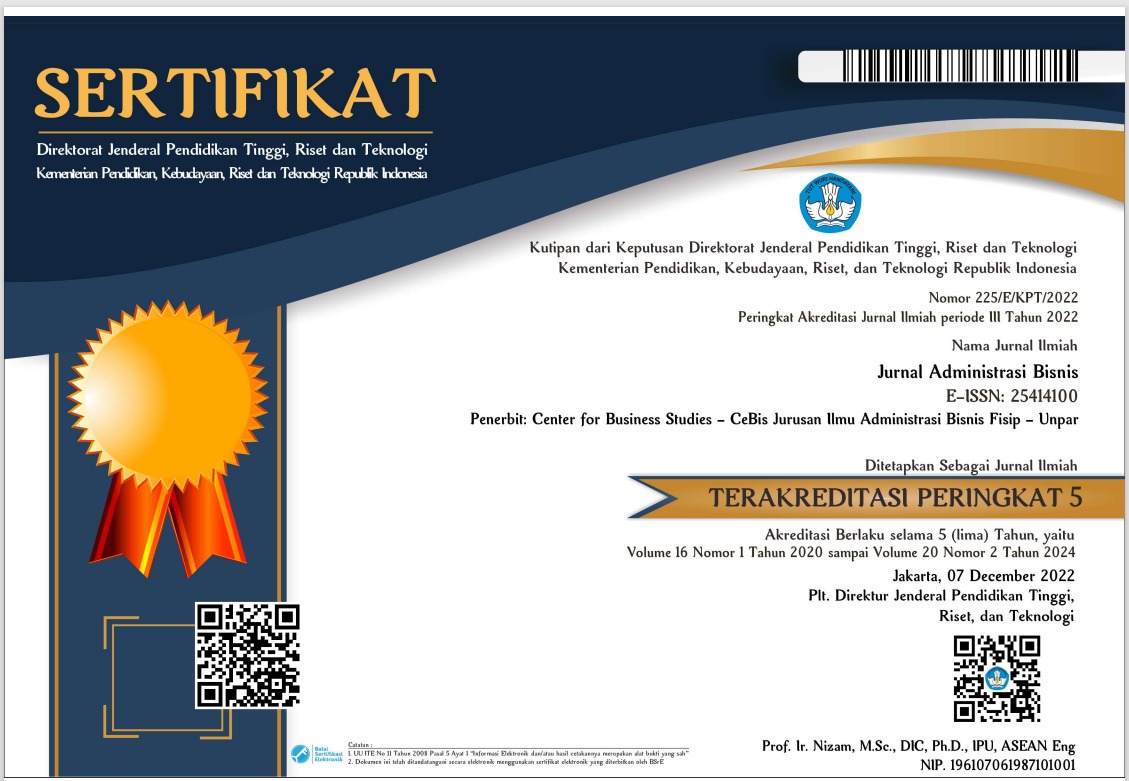Demand Chain Management : Supply Chain Management + Orientasi Pasar
DOI:
https://doi.org/10.26593/jab.v7i1.399.%25pAbstract
In 1980s and 1990s decades supply chain is a popular term implemented in manybusiness firms in the world because of its capability to increasing operational cost
efficiency which lead to cheaper product price. In that time it is widely believed that
lower product price will yield the higher return in companies’s profit, even in the long
term.
As time goes by, it’s grandeur become clearly faded : in the long term com-
panies facing more loss because supply chain do not have a market orientation,
an orientation that can keep companies stay in market for a long time and higher
profit. As a consequences, in early 2000s there is another new term appeared : de-
mand chain management. This term actually is a combination of supply chain and
market orientation term. Zara, an small apparel company compared to world class
fashion designer, gaining higher profit than world class fashion designer since it is
implementing demand chain management.
Keywords: Supply Chain Management, efficiency, Demand Chain Management,
affectivity, market orientation
1
Downloads
Issue
Section
Articles
License
The submitted article has never been previously publish in scientific journals, proceedings, or other electronic journals. The copyright of the accepted articles are belongs to Jurnal Administrasi Bisnis (JAB).












